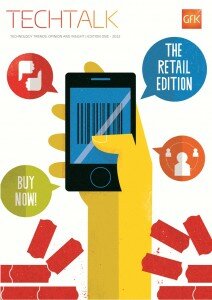![]() In an age when consumers research their purchases thoroughly online, talk to their friends for recommendations, and test out their potential purchases in store, exactly what role do store staff have to play beyond facilitating the experience? Recent research by GfK shows that the suitable mix of in-store recommendations and demonstrations, achieved by store staff training, can be highly effective at increasing sales.
In an age when consumers research their purchases thoroughly online, talk to their friends for recommendations, and test out their potential purchases in store, exactly what role do store staff have to play beyond facilitating the experience? Recent research by GfK shows that the suitable mix of in-store recommendations and demonstrations, achieved by store staff training, can be highly effective at increasing sales.
A new GfK research programme has provided some unique insights into the ROI of store initiatives by combining mystery shopping results with individual store-level sales data. The programme reveals how the in-store experience translates into sales and shows the average uplift in sales resulting from different types of in-store activity. This is highly useful for brands that want to understand how to prioritise in-store marketing budgets, benchmark against competitors, negotiate better rates for display space, and calculate the ROI on in-store marketing spend.
So what are some of the key findings of this programme that are useful for marketers?

 I’m a relative newcomer to the ideas behind disruptive innovation (when Clayton Christensen first published The Innovator’s Dilemma, which provides an evidence-based framework for how new entrants to a market can displace the incumbents by introducing products and services that compete asymmetrically, I was still at school).
I’m a relative newcomer to the ideas behind disruptive innovation (when Clayton Christensen first published The Innovator’s Dilemma, which provides an evidence-based framework for how new entrants to a market can displace the incumbents by introducing products and services that compete asymmetrically, I was still at school). The pressure on offline retail is growing with online retail’s move onto mobile platforms creating instant price transparency. The GfK finding that customer journey patterns are mixing online and offline in the purchase process means that retailers now need to invest in a truly omnichannel approach where both online and offline retail complement each other. By taking this creative route, bricks and mortar will continue to have a successful role in the market for tech products.
The pressure on offline retail is growing with online retail’s move onto mobile platforms creating instant price transparency. The GfK finding that customer journey patterns are mixing online and offline in the purchase process means that retailers now need to invest in a truly omnichannel approach where both online and offline retail complement each other. By taking this creative route, bricks and mortar will continue to have a successful role in the market for tech products.


